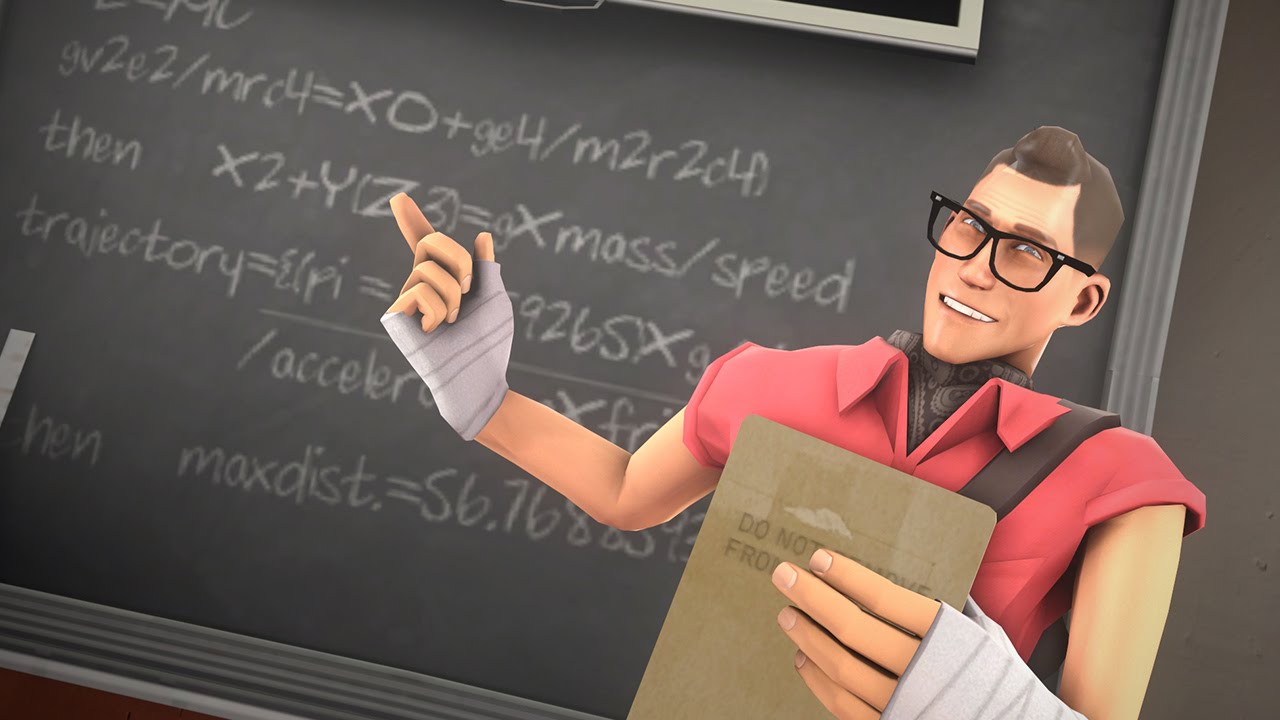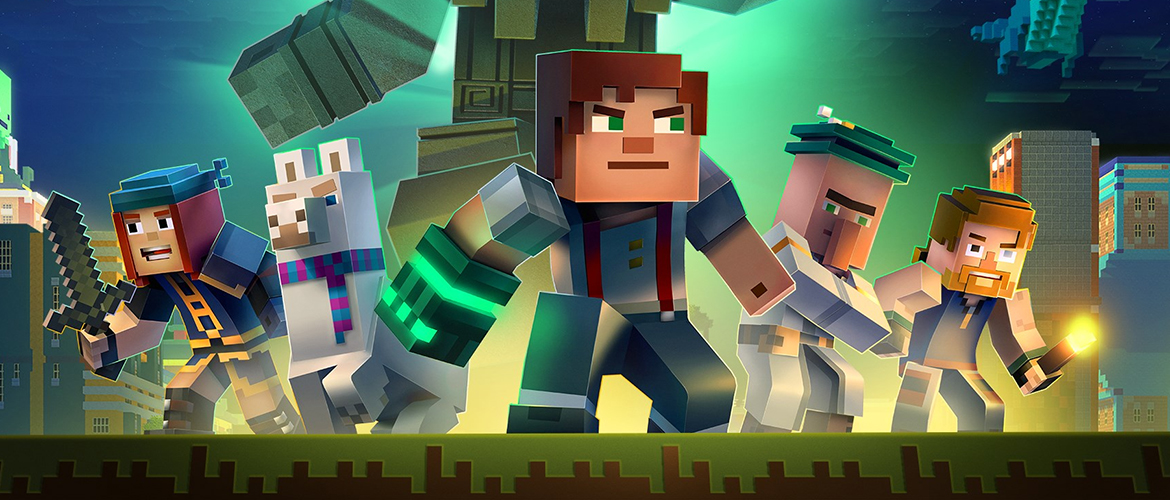Do game developers need a game design degree?
We asked game developers all over the world about getting the fancy paper.

If you want to make games, you might be considering getting a game design degree, the same way you would for many other careers. But the path from standard education to studio job or starting up your own small studio is murky on good days and incomprehensible on bad ones. Unlike becoming a lawyer, there's no standardized test that declares you a Certified Game Designer and no universities teaching to a known, proven standard.
If you want to make games, should you bother with a degree? If you're enrolled in one, how should you use it to start working on the games you've always wanted to make? We asked a number of developers all over the world, some with game design degrees and some with totally unrelated qualifications, about their education and how they wound up making games.
Read the guide before you buy
"Do your research carefully," cautions freelance game designer Rosa Carbo-Mascarell. Not all game design programs are created equal. In fact, they're often completely unequal. Game development programs are still relatively new and may focus on entirely different things. Some developers experienced extremely theoretical and academic courses while others attended programs that focused on practical projects. And some courses haven't been around long enough to easily judge their worth.
Marishka Zachariah ran into that problem while researching university qualifications to apply for. The biggest risk for them in applying to OCAD's Digital Futures program was its newness. Zachariah couldn't rely on the reputation of the program to assure that it would be both beneficial as a learning experience, and matter to employers.
What Zachariah's program at OCAD had, and what every other developer I spoke with cited as invaluable experience, were projects courses. Zachariah's "atelier"-style courses required students to develop a game with others. "We basically did weekly game jams," Zachariah says. "All differing teams, team-sizes, and themes." A good projects course will require students to develop a game or prototype in a set period of time with classmates, mimicking work at an interdisciplinary studio.

Lennie Hakola, now a senior producer at Remedy, had similarly valuable experience as part of his own degree. While he didn't speak highly of the theoretical courses on design, he says "where the studies shined were in the three student projects." Hakola's experience working with other students helped to point him towards his current career path. "I quickly realized that these projects wouldn't go far without management and on-going sanity checks on the scope," he says. So Lennie became the producer, a path he may not have followed without that hands-on development experience.
Chris Chung, who developed Catlateral Damage in his free time and helps hire new members at Fire Hose Games, says that having a degree from a program with a good reputation does help "a little bit," when choosing who to hire, but an applicant's portfolio is more important than the degree itself. Jan Kaluza, a Tech Artist for Deep Silver, agrees that as game development programs vary widely in curriculum and quality, he can't rely only on an applicant's successful completion of a bachelor's degree to show that they can do the job.
The biggest gaming news, reviews and hardware deals
Keep up to date with the most important stories and the best deals, as picked by the PC Gamer team.
The most important thing is just having stuff you've worked on that you can point to and say 'I made that,'
Eric Stirpe
Every developer I spoke with cited the value of game jams, short (usually weekend) sessions where developers, hobbyists, and students all gather to organize into small teams and make a short game. If getting a formal degree isn't in the cards for you, game jams are a great way to supplement your self-directed learning with experience working as a team that university students benefit from. If all goes well, you'll come out with a small game to use as a portfolio piece too.
"The most important thing is just having stuff you've worked on that you can point to and say 'I made that,'" says Eric Stirpe, a former Telltale writer who studied animation, admitting that the "I made this," advice has been repeated enough to design students that it sounds cliche. Still, it holds true according to those I talked with in hiring positions. Stirpe, Hakola, and Kaluza all want to see what you've made more than what you've studied.
Why buy the drow when you can get the loot for free?
If getting a job relies more on having a portfolio, why even get a degree? There are YouTube tutorials and Stack Overflow answers for everything you want to learn. You can use Unity and Unreal Engine 4 for free, not to mention any number of smaller engines. When it comes to group experience, you can participate in game jams without going to a university. Why pay for education that you could learn on your own if you have the drive?
Hakola acknowledges this, as did some of the others. "My actual studies I could have done by researching on my own as the information is out there." He says. "The projects and my classmates, however, were well worth it and I believe that's the strength of the game development courses."

Wren Brier, currently the Art Director of her indie project Unpacking, points out that a degree can come with more than just the technical skills themselves. Halfbrick Studios, where Brier landed her first full-time position, was founded by people who had attended her same university, which gave her an edge on the art test when applying. "Everything I did in the [art] test I learned at the university," she says, not surprised looking back that Halfbrick's work processes were so familiar.
Brier didn't directly get a job based on who she knew, but other developers don't count that out as an influential factor. Chung says his own degree was helpful but having the degree itself hasn't been nearly as useful as the connections he made. "I'd say I'd have a better chance getting a job at another studio if someone there had worked with me previously or if I had met them at a networking event."
I'd say I'd have a better chance getting a job at another studio if someone there had worked with me previously.
Chris Chung
Those connections, though they can be earned outside a classroom, may be easier to retain in a university setting. For Hakola, it was a former classmate working as a programmer at Remedy that directed him towards a current job opening. Though Remedy didn't bring Hakola on for the QA tester position his classmate recommended him for, three months later he was hired as an associate producer thanks to the skills he developed during his projects courses in university.
Once you're in the industry, a degree may still serve you by providing extra job mobility, whether that means moving up in your current studio or moving out of the country. Carbo-Mascarell credits her master's degree for her ability to advance quickly. "I was able to move from being a game designer to a lead game designer in a mid sized studio within half a year," she says. Not only that, but if she ever wanted to move to another country, her master's degree makes it easier for a potential employer to justify her work visa to the government at her destination.
Even if you've already committed to another degree, some developers believe their alternate degrees have served them well in the games industry. Kaluza studied anthropology before eventually joining Deep Silver. "The empathy that's required for good anthropological fieldwork is also very useful for managing a team," he says, also mentioning that the same training has helped him navigate the corporate office environment of a large studio.

Carbo-Mascarell did go on to get a masters in game design theory but credits her undergraduate architecture degree for preparing her for working as a creative in a competitive industry. "It taught me the overall design process, creative thinking, designing to a brief, how to be rigorous with my designs and ask the right questions," she says. And it also taught another skill that's difficult to cultivate outside formal education: "taking and giving criticism."
Does this mean you should go get a degree in fine art or civil engineering or architecture to prepare you for game development? Well, no, probably not. But if you've already got secondary education in another subject, it may still serve you well as a game developer. The wildly different routes that developers still take to enter the industry mean that you haven't ruled yourself out by getting "the wrong degree."
The projects and my classmates were well worth it and I believe that's the strength of the game development courses.
Lennie Hakola
In fact, Brier cautions anyone considering a game design degree to examine the industry in their area carefully. She studied in Australia, where the number of jobs available with studios is far smaller than in other countries. To make matters worse, she first left school during the global financial crisis. Several Australian studios had just closed, dumping developers much more qualified than new students into the job-seeking pool. Before committing to a degree specific to the games industry, make sure to do your research on what kinds of jobs are in your area, or areas you're capable of moving to.
When it comes to getting a game design degree, the relative newness of the field still means that the answer to "should I study game design?" is a strong "maybe." Make sure to carefully study the programs you apply to. Make sure they'll give you experience working in groups and emphasize developing a portfolio. As several developers mentioned, going to class isn't always enough. "Don't just do the minimum amount of work for your classes!" Chung says. "Have side projects, preferably with other classmates."
"Don't focus on the degree," Hakola agrees. "I definitely recommend it [...] but remember that the end goal is to develop games for a living."

Lauren has been writing for PC Gamer since she went hunting for the cryptid Dark Souls fashion police in 2017. She accepted her role as Associate Editor in 2021, now serving as self-appointed chief cozy games and farmlife sim enjoyer. Her career originally began in game development and she remains fascinated by how games tick in the modding and speedrunning scenes. She likes long fantasy books, longer RPGs, can't stop playing co-op survival crafting games, and has spent a number of hours she refuses to count building houses in The Sims games for over 20 years.

